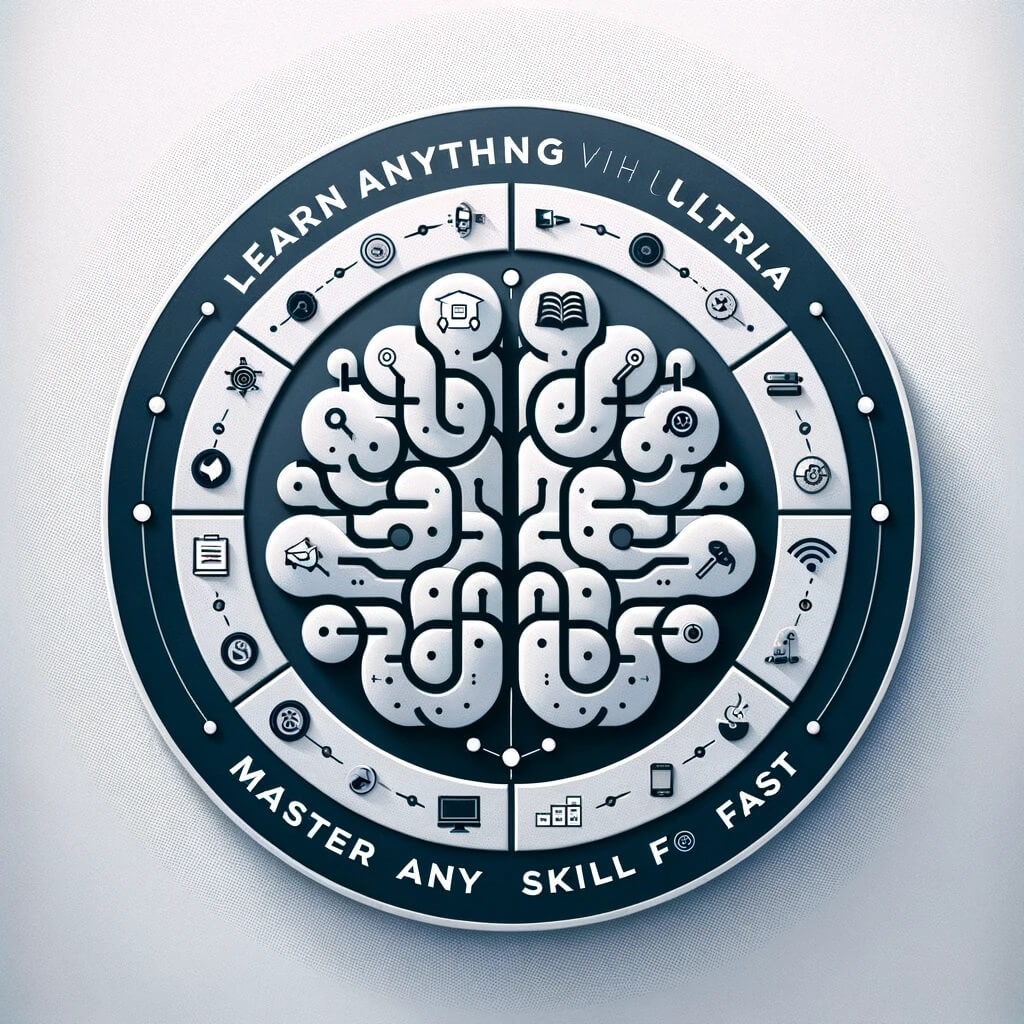
Learn Anything With Ultralearning: Master Any Skill Fast
Have you ever wished you could learn new skills quickly and effectively? Whether it's mastering a new language, excelling in a professional field, or acquiring a new hobby, ultralearning might be the answer you're looking for. Ultralearning is an aggressive, self-directed learning strategy that helps you master hard skills in a short period. In this blog post, we'll explore the principles of ultralearning, its benefits, steps to get started, and how you can overcome common challenges.
What is Ultralearning?
Ultralearning, a term popularized by Scott H. Young in his book "Ultralearning: Master Hard Skills, Outsmart the Competition, and Accelerate Your Career," refers to a strategy for acquiring skills and knowledge through intense, self-directed learning projects. It's about learning things deeply and quickly by taking control of your own education.
Principles of Ultralearning
Scott H. Young outlines nine principles that are central to ultralearning:
- Meta-learning: Start by learning how to learn. Research the subject and understand what knowledge and skills are most important.
- Focus: Eliminate distractions and dedicate time to deep, focused work. High-intensity concentration is key to mastering new skills.
- Directness: Learn by doing. Practice skills in a way that's as close to the real-world application as possible.
- Drill: Identify your weaknesses and drill them until they become strengths.
- Retrieval: Test yourself frequently to strengthen your memory and understanding.
- Feedback: Seek immediate feedback to identify and correct mistakes.
- Retention: Use techniques like spaced repetition to ensure that you retain what you've learned over the long term.
- Intuition: Develop a deep understanding of the subject to the point where you can think and make decisions intuitively.
- Experimentation: Don't be afraid to try new methods and approaches to improve your learning process.
Benefits of Ultralearning
1. Increased Knowledge Acquisition Speed
Ultralearning enables you to acquire knowledge and skills faster than traditional methods. By focusing intensely and practicing deliberately, you can achieve in months what might take years through conventional learning.
2. Improved Problem-Solving Skills
Through direct practice and frequent testing, ultralearning helps you develop strong problem-solving abilities. You'll learn to think critically and apply your knowledge in real-world scenarios.
3. Enhanced Memory Retention
Techniques like spaced repetition and regular retrieval practice ensure that you retain information long-term. This means you can build a solid foundation of knowledge that you can draw on whenever needed.
Steps to Start Ultralearning
1. Identify Learning Goals
Start by clearly defining what you want to learn and why. Specific, measurable goals will help you stay focused and motivated.
2. Conduct Research
Gather information about the subject you're interested in. Find out what skills are essential, what resources are available, and what the best learning strategies are.
3. Design a Personalized Learning Plan
Create a structured plan that outlines what you'll study, how you'll study, and when you'll study. Break down your goals into manageable tasks and set a timeline for achieving them.
4. Implement the Plan with Focus and Discipline
Stick to your plan with discipline. Dedicate regular time to learning and eliminate distractions to maintain high-intensity focus.
Case Studies and Examples
1. Benny Lewis – Fluent in 3 Months
Benny Lewis, a language learning expert, uses ultralearning techniques to become fluent in new languages within just three months. His approach involves immersion, intense practice, and constant feedback from native speakers.
2. Scott H. Young – MIT Challenge
Scott H. Young himself completed MIT's four-year computer science curriculum in just one year. He achieved this by following the principles of ultralearning, focusing on direct practice, and seeking constant feedback.
Tools and Resources
- Books: "Ultralearning" by Scott H. Young, "Deep Work" by Cal Newport
- Online Courses: Coursera, Udemy, Khan Academy
- Study Aids: Anki (spaced repetition software), Quizlet, Flashcards
Common Challenges and Solutions
Time Management
Balancing ultralearning with other commitments can be challenging. Create a realistic schedule and prioritize your learning activities.
Maintaining Motivation
Staying motivated over long periods can be tough. Set small, achievable milestones and celebrate your progress to stay inspired.
Dealing with Setbacks
Setbacks are inevitable. Use them as learning opportunities rather than discouragements. Analyze what went wrong, adjust your approach, and keep moving forward.
Conclusion
Ultralearning offers a powerful way to master new skills quickly and efficiently. By following the principles outlined by Scott H. Young, you can accelerate your learning, improve your problem-solving abilities, and retain information more effectively. Start your ultralearning journey today, and unlock your potential to learn anything with speed and depth.
Remember, the key to success is taking control of your own education, staying focused, and practicing deliberately. Embrace the challenge and see how ultralearning can transform your personal and professional life.





